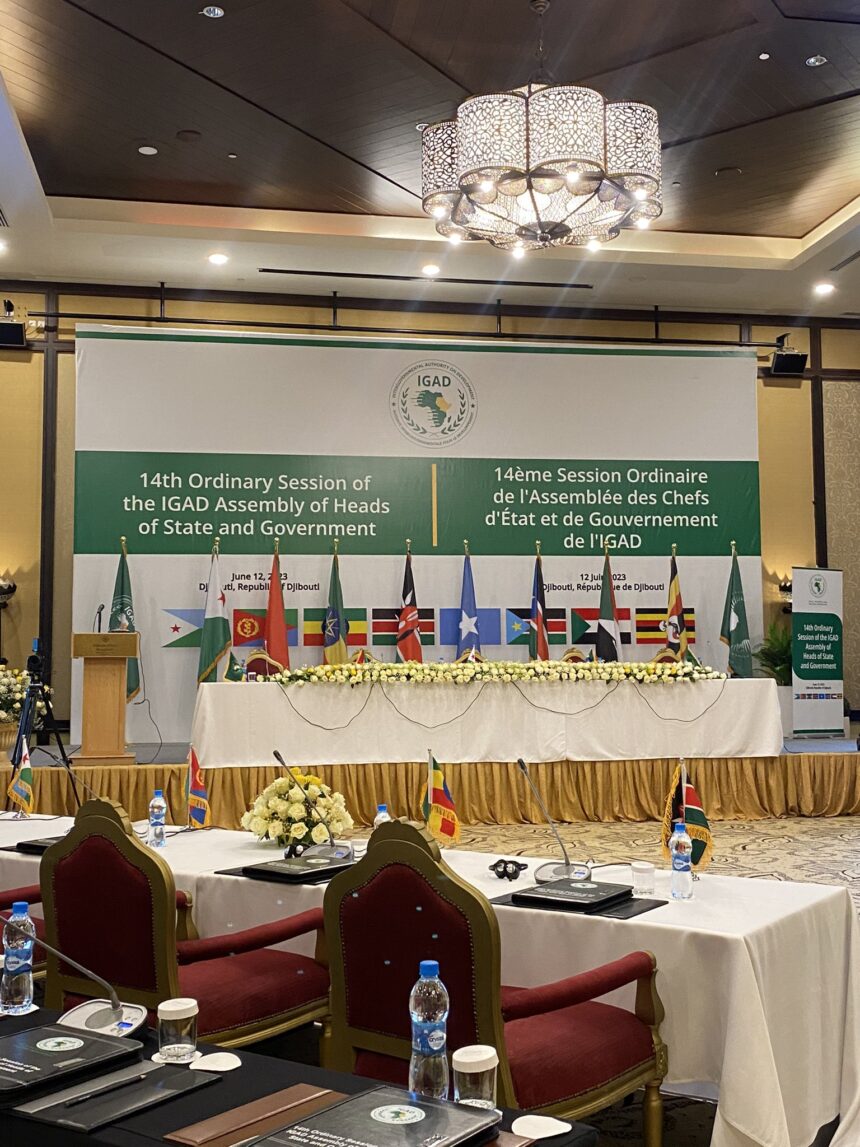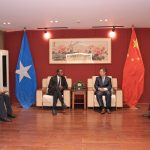Djibouti – The 14th Ordinary Summit of the Intergovernmental Authority on Development (IGAD) officially commenced today in Djibouti. This important event brings together heads of state and government from member countries, including the esteemed presence of President Hassan Sheikh Mohamud of the Federal Republic of Somalia. The summit aims to foster collaborative efforts among nations and address pressing regional matters.
IGAD, a regional organization in East Africa, has stated that the summit will serve as a platform for leaders and officials to engage in constructive dialogue on a range of regional issues, particularly focusing on IGAD’s response to various endeavors in the area. With the participation of distinguished heads of state, the meeting is expected to facilitate discussions that lead to impactful decisions and effective policies.
One significant topic on the summit’s agenda is the progress of the peace process in Sudan. Leaders will assess the current state of affairs and deliberate on strategies to promote stability, reconciliation, and sustainable peace in the nation. By engaging in open dialogue, member states can collaboratively address the challenges faced by Sudan and work towards a brighter future for its people.
In addition to the Sudan peace process, regional security and cross-border threats such as terrorism will be a major focus of the discussions. With the aim of enhancing regional security cooperation, leaders will explore ways to counter terrorism effectively and mitigate its devastating impact on the region. This issue demands a unified approach from all member states to ensure the safety and well-being of their citizens.
The 14th Ordinary Summit holds significant importance in the region, as it builds upon the achievements and outcomes of the previous summit held in Addis Ababa, Ethiopia, on November 29, 2019. At that time, Prime Minister Abiy Ahmed of the Federal Democratic Republic of Ethiopia served as the chairman, and the summit paved the way for collaborative efforts among member countries to address regional challenges collectively.
As the 14th Ordinary Summit progresses, the international community eagerly awaits the outcomes and decisions that will shape the future of the region. The summit represents a crucial opportunity for leaders to reinforce their commitment to regional cooperation, foster peace and stability, and tackle emerging issues head-on.





